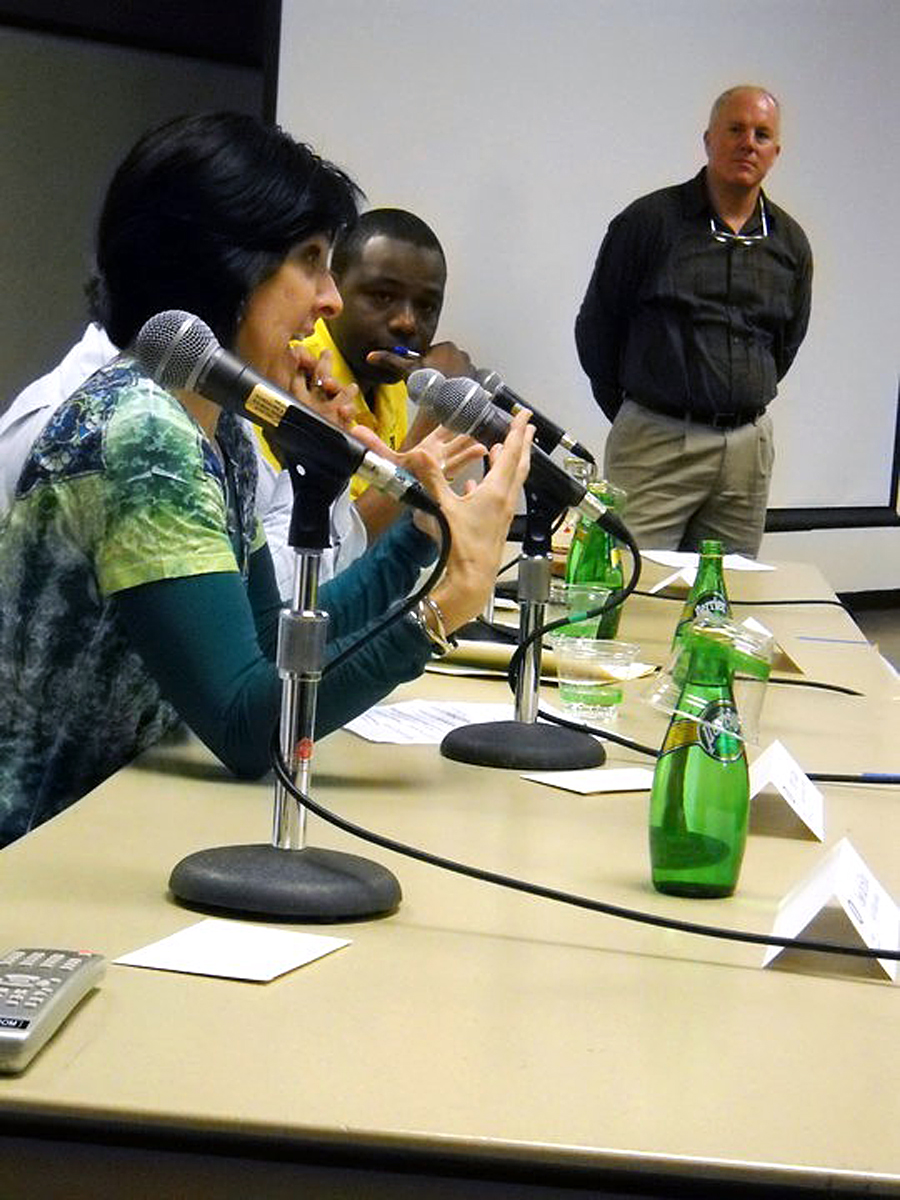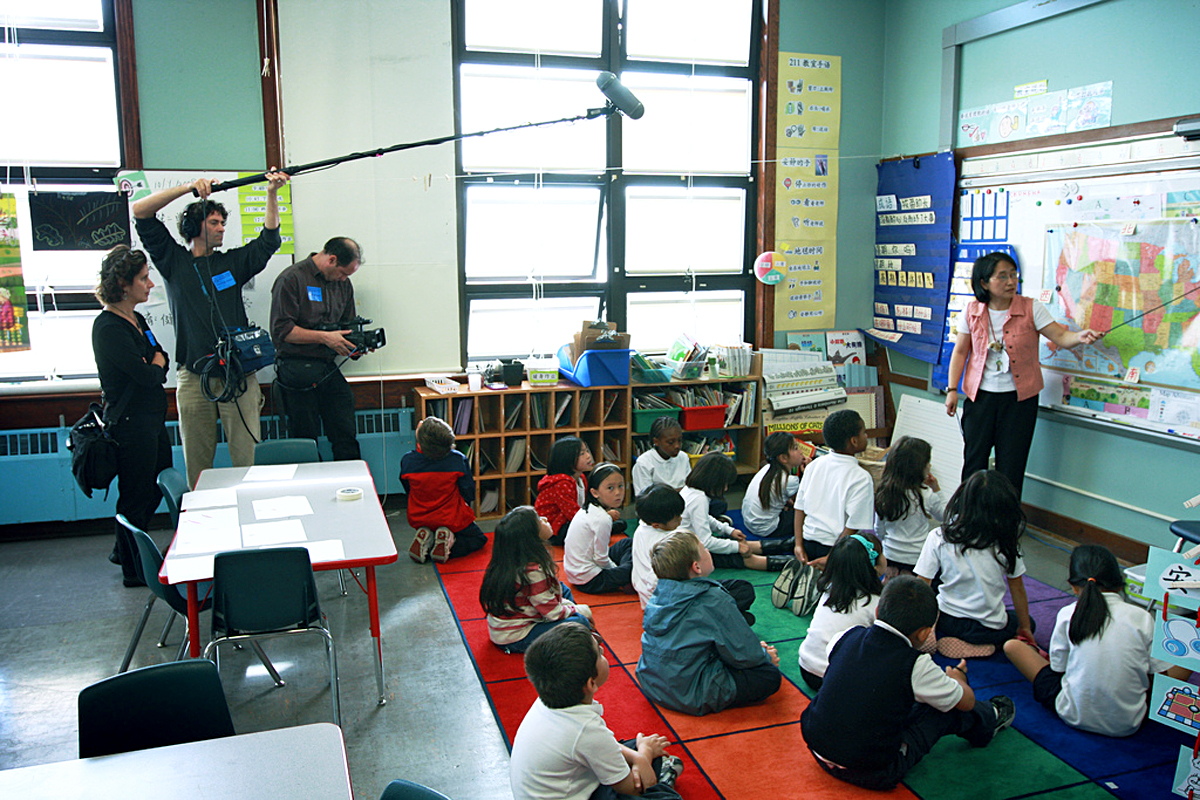Story by Ashley Van Osdel
Consider this statistic: By 2025, a third of children in the United States will not speak English when they start kindergarten.
The United States has a proud history of being a diverse country built on the backs of immigrants, but in recent years the debate surrounding immigration and globalization has become heightened. One particularly tense facet of this debate concerns the role of the English language in our country.
On Friday night, the University of Oregon’s Office of Institutional Equity and Diversity, the Center for Applied Second Languages Studies (CASLS), and other campus partners presented a new documentary, Speaking in Tongues. The film asks the question: “In our diverse country, in our increasingly international world, is knowing English enough?”
Speaking in Tongues follows four elementary and middle school-age children who all attend dual language or immersion programs.
In a dual language program children spend roughly half the day learning English, and the other half learning Spanish, Mandarin, French, Japanese, or another language. Through this program, students can become bilingual, or capable of speaking and writing in a foreign language, by the time the go to high school.
Josh and Talia Stroud decided to send all three of their children to Eugene’s Yujin Gakuen School, the country’s first public Japanese immersion school. Stroud’s experience growing up as an African American in a largely Asian preparatory school taught him the value of experiencing different cultures.
“It’s a no-brainer,” he says. “I wanted my kids to have a broader worldview. Why wouldn’t you want to teach them different languages and cultures?”
Research shows that children under the age of 13 are much better at learning and retaining new languages. Many countries begin teaching children a second or even third language while they’re still in grade school. However, the idea of teaching a foreign language to young children remains rarely practiced in the United States and often, says CASLS Director Carl Falsgraf, puts languages at odds with one another.
“Instead of pitting languages against each other, wouldn’t it be great if we just advocated for bilingualism in general?” Falsgraf says.
Getting more people to become bilingual and endorse the idea of a multilingual America continues to be a challenge. More than 30 states have passed English-only initiatives that seek to make English the official language in the U.S. Fear of losing a sense of “Americanism” and national identity has driven many people to view dual language programs as threatening and not worth the added effort.
Abby Lane, the ESL coordinator for the Eugene 4J School District explains this phenomenon.
“People generally think it’s a good idea [to learn a different language] but they worry about how we’re going to fit in another program,” Lane says. “The funding is so tight, and people are wary of making a change when they don’t understand the benefit.”
Such benefits include higher performance rates among children enrolled in dual language programs in both English and their secondary language. One of the schools featured in Speaking in Tongues tested first among 76 other schools in its district in English despite the fact that the children spent the majority of their school day learning Cantonese.
Speaking in Tongues will be airing on PBS this fall. Learn more about the documentary here.









